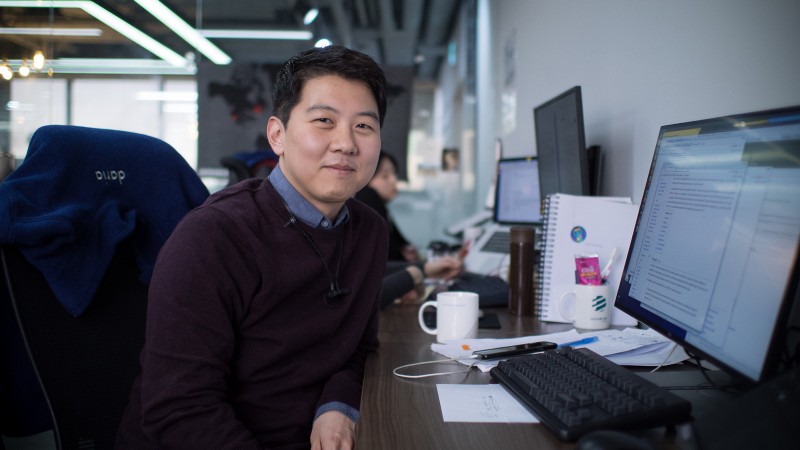As a yet minuscule startup, each member holds a significant power over the overall atmosphere of the team. And in our ultimate quest to make big waves in the data world, we need to make sure that the people at the helm are at least kind of cool. We think we’ve done a pretty good job so far in assembling a society of unique but equally driven members.
So we bring you this seven-part series, one of each devoted to interviewing each of our members in detail, to give you an in-depth glimpse into the people responsible for bringing you the future of machine learning with Daria. Plus, we peppered the interviews with questions from Dr. Aron’s “The 36 Questions that Lead to Love”*, cherry picked to make work appropriate and concise, but interesting.
(*actually falling in love with our members highly discouraged)
Jungkap, the most recent addition to our team, made the move from sunny Santa Clara to Seoul, a city that is slowly freezing over as you read this. But he is used to the cold, Jungkap assures us, having spent his doctorate years in the apocalyptic winters of Michigan. When he’s not busy helping build Daria’s machine learning engine, Jungkap devotes his time to re-exploring Korea and taking care of his cats Jolie and Brad (named so before the tragic dissolve of Brangelina). Learn more about him here!


#엑스브레인 #팀원소개 #팀원인터뷰 #기업문화 #조직문화 #팀원자랑 #머신러닝 #머신러닝엔지니어